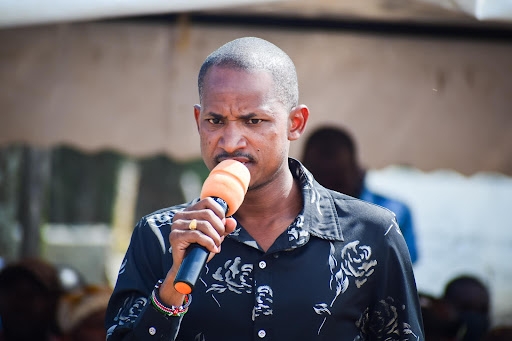

Anti-terrorism police say they have disrupted what they describe as one of the most intricate terrorism facilitation networks identified in the country, marking a significant development in ongoing efforts against extremism.
Nine suspects, including a well-known Nairobi lawyer, are anticipated to face charges in court in the coming days following extensive intelligence-led inquiries and a series of coordinated operations by the Anti-Terrorism Police Unit (ATPU).
Central to the matter are approximately ten young recruits who were arrested earlier this year while allegedly preparing to leave the country. Their detention has reportedly been pivotal in guiding investigators toward the broader network.
The recruits are said to have been influenced online and through local contacts before being moved through Kenya to Puntland, in northern Somalia, and later to Yemen. These areas are described by security officers as transit points for individuals aiming to connect with ISIS affiliates as pressure mounts on the group’s strongholds elsewhere.
“It operates like a conveyor belt,” a senior ATPU officer explained. “Kenya serves as a corridor. Once they reach Puntland, arrangements are made to cross the Gulf of Aden into Yemen, where they link up with established ISIS cells.”
The lawyer, known for previously representing several terror suspects, is reported to have first interacted with the extremist network while defending radicalised youths facing terror-related charges in Kenyan courts.
“He initially appeared as defense counsel in several terrorism cases,” an investigator familiar with the situation said. “Over time, he is believed to have moved from solely offering legal services to becoming involved in the wider facilitation network.”
Authorities allege that some of his legal fees were linked to extremist financiers associated with ISIS and that he later agreed to help coordinate various aspects of the network’s activities.
“It seems he was gradually incorporated into the wider facilitation structure,” the official added. “His role eventually extended beyond the courtroom.”
The lawyer is expected to face charges related to terror financing, membership in a terror organisation, and participation in a criminal network, with the specific counts to be confirmed when the suspects appear in court.
Investigators claim to have assembled what they term “overwhelming” material connecting the group to financing, logistical support, and the movement of recruits to ISIS cells abroad, particularly via Puntland to Yemen.
According to senior security officials, the latest operation is the result of months of surveillance and financial analysis. The ATPU reports having traced a significant financial trail linking the arrested individuals to the recruitment and movement of young Kenyans to conflict zones.
The collapse of what authorities regard as the largest ATPU-detected terror facilitation network to date is viewed as a major tactical win.
“Our message is clear: Kenya will not be a soft route for terror logistics,” a senior official stated. “We will trace the money, wherever it goes – even into the digital shadows of cryptocurrency.”
Police sources report that the material includes bank transfers, hotel booking records, cross-border travel documents, and various digital transactions processed through cryptocurrencies, which operate outside traditional banking systems.
“This is a well-structured facilitation network,” one security official remarked. “We have financial experts, advocates, tour operators, hoteliers, and boda boda operators working together to move money, individuals, and information. The documentary material we possess is substantial.”
The suspects are currently being held at ATPU facilities in Nairobi while officers finalise the files. Prosecutors are expected to seek extended custodial orders to allow further examination of digital devices, financial records, and communication logs.
These arrests come nearly two decades into Kenya's fight against terrorism, a struggle marked by high-profile attacks and complex extremist networks that cross international borders.
From the 1998 US embassy bombing in Nairobi to the 2013 Westgate mall siege and the 2019 DusitD2 complex attack, Kenya has consistently found itself on the frontline of global jihadist violence. This enduring threat has encouraged multi-agency cooperation, the formation of specialised units such as the ATPU, and the enforcement of stricter counter-terrorism laws.














